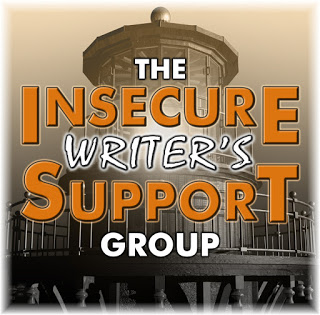 “The day you were born, we still hadn’t decided what we were going to call you. With the move, we hadn’t had the time to choose. I wanted to name you Liliuokalani, but your dad wouldn’t hear of it. I still think that is one of the most beautiful names ever.
“The day you were born, we still hadn’t decided what we were going to call you. With the move, we hadn’t had the time to choose. I wanted to name you Liliuokalani, but your dad wouldn’t hear of it. I still think that is one of the most beautiful names ever.
“Our first compromise was Susan Dawn. I liked Dawn, and your father wanted to name you after me. But as I looked at you, perfect and gentle in my arms, I wanted more than a beautiful name for you. I wanted you to be strong. And to be strong you need a strong name. That is why we named you Erika. The moment we decided it, you scrunched up your face and screamed, making sure the whole world knew you were there.”
Maybe it’s this story that made me believe in the power of names. Or maybe it’s my inner writer believing that words have power. But I think what we call something shapes it, creates it in our mind, and gives it an identity. Whether you are choosing your name as an author, your characters’ names, or your book title, it should be chosen with purpose and care.
Nom De Plumes
The obvious reason for a nom de plume is to provide an extra level of separation between an author’s professional and personal life. However, a nom de plume can also be a marketing tool. Here are some ways to get the most out of your nom de plume.
 Prevent confusion with authors with the same or similar names. Be sure to do a search on GoodReads and Amazon to make sure there isn’t another author with the same name.
Prevent confusion with authors with the same or similar names. Be sure to do a search on GoodReads and Amazon to make sure there isn’t another author with the same name.- Ensure a unique and searchable name. By choosing your name you can pick something that is universally available across all social media platforms and your website domain.
- Position yourself alphabetically alongside popular genre authors on the bookshelf. You may not get a significant change in sales, but someone browsing the shelf might see your book and pick it up.
- Keep your different genres separate. Many authors who write disparate genres use different names for each so their audience doesn’t have incorrect expectations of the book. Sometimes the name is vastly different like Nora Roberts/ JD Robb, and sometimes it is much more similar like Victoria Schwab/ V.E. Schwab.
One challenge of a nom de plume is remembering to introduce yourself by that name in all professional situations. Years of giving your birth name can be a difficult habit to break. (Trust me. I kept failing to introduce myself as Ema, so mine became E.M.A., even though I still think three initials are a bit pretentious.)
Character Names
Some writers randomly choose their characters names. Although there is nothing wrong with this method, I think it is a missed opportunity to convey more about the character you have created. Here are some things to consider when you are naming your characters.
 Identity: I can’t imagine being the me-of-today with a name like Liliuokalani or Susan. My identity isn’t solely due to my name, but my name definitively shaped my identity. The same is true about the characters we create. Their identity should be shaped by their name. (Just think of the nicknames they would have suffered through.)
Identity: I can’t imagine being the me-of-today with a name like Liliuokalani or Susan. My identity isn’t solely due to my name, but my name definitively shaped my identity. The same is true about the characters we create. Their identity should be shaped by their name. (Just think of the nicknames they would have suffered through.)
First Impressions: As I’ve said before, your character’s name is part of his first impression. It is one of the first strokes creating the image of your character in your reader’s eye.
Uniqueness: If you take the time to come up with a memorable name that is fairly unique, someone who reads your book can find it again by your character’s name. Make sure that when you are making your unique name that it isn’t too strange. You want your reader to be able to easily digest it in the prose and remember how to spell it so it’s easy to find.
- Tip: Just because a name sounds good doesn’t mean it is easy to read when repeated in prose. Make sure the shape of the name is visually appealing as well.
Deeper Meaning: One way to choose a name is to use the meaning behind it. I steer clear of the name giving away my character, like a beauty named Belle or a warrior named Gunnar. Instead, I have the meaning reflect something important about the character. For instance, a loyal character being named Caleb since it means dog.
Genre: Make sure your character names reflect your genre. The names used can quickly shift the feel of a story from contemporary to fantasy.
Here are a few of my favorite name sites.
Titles
A book’s title is a powerful marketing tool. A strong title is an asset when you are pursuing traditional publishing and is a necessity if you are self-publishing. It should pique the reader’s curiosity, posing a question they can’t resist and evoking interest without spoiling the story.
Here are some tips for finding your perfect title.
 Make a list of at least ten to twenty titles.
Make a list of at least ten to twenty titles.
- Use a single word that encapsulates the story or captures the mood of your story
- Use metaphors or symbols that reflect the theme of your book
- Use noteworthy or catchy phrases from your prose
- Use alliteration
- Use a slightly modified popular phrase
- Use other book titles for inspiration
- Use copywriting manuals for guidance
Check that it isn’t already a title.
Check your market and look for trends. Three to five years ago, almost every popular YA fantasy book had a single word title (Delirium, Divergent, Matched). In the past couple years, there has been a shift to combinations (Court of Blood and Starlight, Daughter of Smoke and Bone) or phrases from the prose (Children of Blood and Bone, Turtles All the Way Down). Knowing your genre is key to selling your book whether it’s to a publisher or to your readers.
Test your top titles. Ask your community. Run surveys. You don’t create your novel in a vacuum, your title shouldn’t be created that way either.
 Created by Alex J. Cavanaugh, the IWSG’s purpose is to share and encourage. Writers can express doubts and concerns without fear of appearing foolish or weak. Those who have been through the fire can offer assistance and guidance. It’s a safe haven for insecure writers of all kinds!
Created by Alex J. Cavanaugh, the IWSG’s purpose is to share and encourage. Writers can express doubts and concerns without fear of appearing foolish or weak. Those who have been through the fire can offer assistance and guidance. It’s a safe haven for insecure writers of all kinds!
To join, simply sign up by clicking on the button below and adding your name to the linky list. Then post the first Wednesday of each month and visit your fellow bloggers to lend your support.
This month’s co-hosts are Beverly Stowe McClure, Tyrean Martinson, and Ellen @ The Cynical Sailor!
This month’s optional question: “What’s harder for you to come up with, book titles or character names?”
Photo Credits
Main Image: Name Blackboard by Flash Bros
Momma’s Support by Alex Pasarelu
Pinterest image: Hand-written Names by chuttersnap






I love this post!!!!
Thanks, Marie!
I usually grab placeholder names for characters at least at first so that I can keep writing. But sometimes those characters grow into their names and then I can’t think of them by any other!
I completely understand that. When characters become individuals changing their name can just feel wrong. When I am writing and don’t have a name determined, I use a placeholder starting with @, something like @stuckupgirl, @neighbortown, etc. This makes it easy to find every name I need to figure out and prevents me from getting stymied coming up with a name I like in the moment.
Great advice 🙂 I’ve never put that much thought into my writing name, other than whether it’d be mine or my fiancee’s! I probably should’ve before I branded my website and twitter ‘Dragonspire.’
With my current work in progress names are easy: I’m writing based on Arthurian legend so there’s not much to change. My other work in progress is fantasy, and I always think names can be a little different there (So long as you can pronounce them :D)
I had to come up with a title today for a short piece I just submitted. I almost gave away the end of the story in the title. So glad I thought about it more before submitting. Titles seem more important in short works because it can add or highlight something in the story before readers begin reading the story itself. Since most short pieces have tight word limits, a title and/or character name can give more information without adding words. Thanks for this post.
Awwww… I love your name story! Excellent naming and titling tips too. I have recently put more effort in last names and middle names for sure, researching family history for any commonalties and links back to my character. I think it will be fun to see how history might work it’s way into my present characters lives. Happy IWSG day Erika.
I store up names. I make up my own titles which is easier for me.
I like to know what names mean and where they came from. As a science fiction writer, I sometimes get to make up totally new, futuristic sounding names. But even with a totally made-up name, I still think about what the name might mean and where it might have come from.
Most of my books are one word and I did do a search first. All are unique!
I can’t imagine the pressure that goes into naming a child.
I’m with you. I put a ton of thought into every name, but my kids ended up with the most thought. Some of them came, but most of them we had to discuss for years before they were born. There is definitely power in a name.
I tend to get a image when I say a name–book or character. It helps when trying to figure them out. 🙂
Anna from elements of emaginette
Another excellent post, Erika. I LOVE how you started the post with an anecdote. Truly an informative post. I’ve shared it online. All best to you!
I loved your post, Erika! It has excellent suggestions for writing titles and character names, not to mention nom de plumes; but best of all was your naming story. “Liliuokalani” is a beautiful name, but think of how many times you would have to tell people how to pronounce it or spell it! I was stuck with the first name “Myrtle.” I hate Myrtle. Funny thing was that when I became an American citizen I could have changed it and didn’t. I felt like that would be a betrayal of my parents and my grandmother after whom I was named. Everyone has always called me Louise from birth, and I’m really happy with that. I agree with you, names and words have power. Happy writing in June!
Most names I create are just the first or second thing I land upon, but some do have more thought and significance.
Erika’s story touched my heart. Just beautiful. I chose my author name carefully. My first name has a bit of a tale to it. My last just came to me. A bit bizarre, huh? When I looked it up, it said, “powerful” so I thought, “yep that’s me!” now, years later when I look it up it has another meaning: beloved. I’ll take it. 🙂
Elsie
So true about pen names. If I ever decided to write romance, I might change the spelling of my name to Leigh. 🙂 I agree about the visual pleasantness of the name – nothing turns me off and takes me out of a story faster than some weird name that I can’t pronounce in my head.
As always, a thoughtful and useful post. I’ve often wondered if a person grows into their name. Your parents must have believed it to be the case. I wonder the same about naming the characters in our books. Do we have them grow into the name we’ve chosen, or do we already know how they will turn out before we give them their names?
I love your post, Erika! 🙂
I also like the ‘sound’ of a name. But as wonderful as a name ‘sounds’, the aural appeal should ideally be secondary to the appropriateness of the name.
I read an interesting IWSG post where the author said she researches geography and culture before settling on a name. Another IWSG participant said that a name needs to also be decade-appropriate, which makes sense if one actually wants to find the best possible name for the character.
Great tips! You shared far more about naming characters and coming up with book titles than I would have ever considered! Naming can be super complicated or relatively easy and it all depends on how much effort you want to put into it. I think the more effort, the better suited the name can be for the character(s). Thanks for this awesome post!
All great thoughts. Names are powerful and we should put a great deal of thought into them.